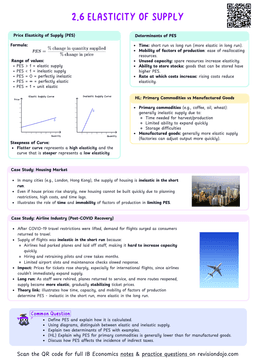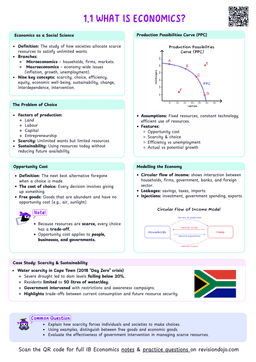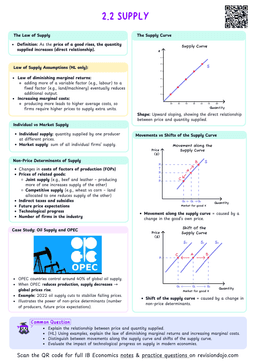Trade Protection
When the government intervenes in international trade by imposing restrictions to reduce free imports.
- Trade Protection leads to positive and negative impacts for economies, with welfare loss being always present due to inefficiencies.
- Yet, governments still fight for protection.
- It is important to note that not all arguments are positively looked at by economists.
- Under non-economic or long-term considerations, some arguments are justifiable while others seem questionable.
Justifiable Arguments
Infant Industry
Infant Industry
A new domestic industry that has not had the time to achieve production efficiencies and hence, not established itself yet.
These infant industries may struggle to compete with established global firms that are more efficient, have less costs and incur the benefits of economies of scale. Therefore:
- Shielding these emerging industries from international competition initially allows them to grow and become competitive.
- Hence, they can be protected up until their costs are not comparatively high to foreign producers where they are ready to compete and will not get disincentivised by foreign producers.
This argument is strong on the basis that countries may have a comparative advantage on an industrial good but cannot compete initially without initial establishment and protection.
However, issues arise with this argument as:
- It's difficult for governments to predict which industries will achieve relatively lower costs in the future.
- Firms that receive protection may become inefficient and reliant without an incentive to grow.
- Governments may still continue protecting firms even after maturity.
National Security
Some industries, especially in defence, are vital for national security as:
- Protecting these sectors ensures that a country remains self-sufficient in times of crisis, avoiding dependency on potentially unreliable foreign suppliers.
- Further, having an unfriendly nation specialise in such goods and services may have negative potential effects when in crisis.
This argument is also considered to be reasonable however:
- Some industries that are indirectly related or have small connections with defence industries try to receive protection.
- This leads to lack of competition in those respective industries and could lead to inefficiencies as well.
Health and Safety Standards
Trade restrictions help maintain strict health, and safety standards, ensuring substandard foreign products do not endanger citizens or the environment.
However, this argument can be used as a hidden barrier to reduce competition for foreign producers and create bureaucratic delays (see 4.2.4 Administrative Barriers).
Environmental Standards
Similarly, imposing restrictions to maintain environmental standards could be crucial for countries, particularly those focused on sustainability.
- As the current world is shifting towards more sustainable growth, environmental protection could be a valid protection imposed
- However, this means countries could take advantage of these standards easily.
Economic Diversification for Developing Countries
Economic Diversification
Shift of the economy from fewer to larger number of income sources.
Free Trade (alongside comparative advantage) encourages a country to specialise its production into one or a fewer range of goods and services
- Developing countries usually specialise in very few primary commodities.
- Hence, they struggle to grow and develop other sectors with trade.
- Further, they face many issues from over-reliance.
Trade protection can help diversify the economies of developing nations (ELDCs), reducing reliance on a narrow set of exports and fostering more stable, long-term growth.
However, a risk that could appear is that governments might not know which goods are most effective to protect for further diversification.
Questionable Arguments
Anti-Dumping
Dumping
The sale of goods and services in international markets at a price that is lower than the cost of production
Dumping creates unfair advantages (usually paired with 4.2.3 Export Subsidies) and is illegal by international agreements.
- Governments that suspect foreign countries of dumping, impose tariffs to prevent unfair competition, as it could otherwise harm and cripple domestic industries.
However, anti-dumping is questionable as dumping itself is difficult to prove and it could be used to offer protection to domestic industries even when the case is not viable.
Unfair Competition
Countries may engage in many forms of unfair advantages:
- Dumping (explained above)
- Export subsidies (4.2.3 Export Subsidies)
- Administrative barriers as hidden protection (4.2.4 Administrative Barriers)
- Artificially low exchange rates (4.5 Exchange Rates)
- Obtaining intellectual property illegally
Therefore:
- Protecting local businesses from unfair advantages helps promote fair competition and prevent market distortions.
However:
- This concept is difficult and time-consuming to prove.
- Therefore, countries use these arguments for other hidden reasons and take advantage.
Balance of Payments Correction
A balance of payment deficit occurs when money outflow is larger than money inflow for a country, usually due to more imports than exports (4.6 Balance of Payments).
- By limiting imports, countries can reduce trade deficits and stabilise their economies, helping to correct imbalances in international payments.
- However restrictions on imports will come at a cost of falling exports from and retaliation from other countries.
Hence, in the long-term this solution for economies does not hold strongly.
Government Revenue
- Tariffs and duties provide governments with a source of income.
- This is especially true in countries with underdeveloped tax systems, as it supports public finances and infrastructure.
- However, they are regressive, worsen income distribution (4.2.1 Tariffs) and can be act as an excuse for governments to delay the change of their tax systems.
Job Protection
By limiting foreign competition, trade protection can help preserve domestic jobs, especially in industries vulnerable to being undercut by cheaper imports.
- However, if restrictions are imposed on goods and services used as inputs within industries in a country, this could raise the costs of production and backfire as it could worsen employment.
- Further, improving employment in a country by imposing barriers could worsen employment for other countries and cause them to retaliate.
Self review
- Explain why trade protection can be important and provide arguments for this reason.
- Explain why the arguments provided might have flaws in reasoning.
How can one decide whether an argument for trade protection is unreliable in justifying restrictions? What benefit is regarded as more important?
Case studyIndia's Ban on Chinese Apps (2020)
Context:
In 2020, following border tensions between India and China, the Indian government banned over 200 Chinese apps, including popular ones like TikTok, WeChat, and PUBG Mobile. Officially, the ban was justified on the grounds of protecting user data and national security. However, analysts suggested that the move also aimed to reduce China’s economic influence in India and promote domestic tech companies.
Real Reason and Effects:
Official Reason:
The government cited concerns over data privacy and national security, claiming the Chinese apps were misusing data and posed risks to India's sovereignty.
Potential Underlying Reason:
The ban also served as an economic response to geopolitical tensions, aiming to reduce dependency on Chinese tech and encourage the development of Indian alternatives (like ShareChat for social media and Koo as a Twitter alternative).
Effects:
Impact on Chinese Companies:
Chinese firms lost access to one of the largest markets globally, resulting in significant revenue losses. For example, TikTok's parent company, ByteDance, lost millions in advertising revenue.
Boost to Domestic Startups:
Indian app developers benefitted from reduced competition, with local apps seeing rapid growth in downloads and usage.
Geopolitical Signal:
The move sent a strong message of economic retaliation amid growing tensions, affecting trade and diplomatic relations between India and China.
Questions:
- How effective was India’s ban on Chinese apps in achieving its stated goal of protecting national security and promoting domestic industries?
- Do such restrictions benefit a country’s economy in the long run, or do they risk isolating consumers and businesses from global innovation?


